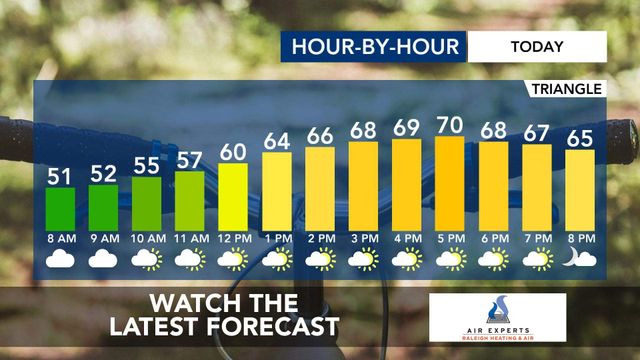Duke psychologists: How to get people to wear masks, get vaccines
Duke University experts in psychology and behavior met Thursday to discuss ways to encourage people to wear masks, practice social distancing and get a coronavirus vaccine when it's available.
Dan Ariely, a professor of psychology and behavioral economics, suggested people need friendly enforcement to adopt certain behaviors.
"We need people to say to each other, 'Thank you for wearing a mask,' and 'I'm not comfortable, can you put on a mask?,'" Ariely said.
Gary Bennett, a professor of psychology and neuroscience, agreed, saying we need to encourage people instead of browbeating them. He said education about social distancing, mask wearing and the importance of getting vaccinated is not a cure-all.
"[We need] a lot less telling people what to do, we need to show them examples and start modeling behaviors instead," Bennett said.
The professors emphasized relying solely on public education hasn't historically worked in public health crises.
Instead, the desired behaviors need to become societal norms. People also need to focus on others and how their personal actions impact the world.
"COVID-19 is a terrible tragedy, but if nothing bad happens to you, you learn the wrong lesson," Ariely said, explaining that we can't hope that peoples' personal experiences are enough to inspire change.
Lavanya Vasudevan, an assistant professor in the Department of Family Medicine and Community Health and the Global Health Institute at Duke, spent much of the meeting talking about the importance of vaccinations.
"In my opinion, our best hope at getting the pandemic under control is to get a vaccine," she said. "It is not our only way out, but it's a very important strategy."
If the COVID-19 vaccine is to be successful, a majority of people need to get it, she said, citing a study showing that 58% of Americans said they would get vaccinated -- more than originally said they trusted the vaccine months ago.
According to Vasudevan, the increase is promising, but health officials have said, optimally, close to 70% of people need to trust the vaccine.
"Public health is all about collective action and public participation," she said. "Vaccines themselves don't save lives, vaccinations do."
To convince Americans to get vaccinated, Vasudevan said ads and campaigns need to feature information from sources people trust -- and people need to get more personalized information as opposed to a more generic "the vaccine is safe."
"The systems we create are important," Ariely added, suggesting a hypothetical situation where appointments to receive the vaccine automatically were made for people. Instead of deciding to get the vaccine, people would have to decide to opt out, and more people would end up getting vaccinated.









